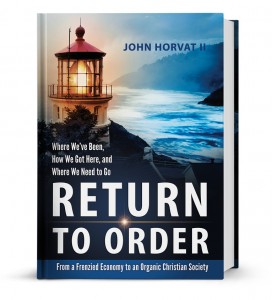
by Dennis Best*
A healthy economy is fundamental for a thriving society. Thus, the role of economics is to help maintain societal wealth and secure the means to more comfortable living for a people.
Is Technology Ruining Your Life? Take A Quick Quiz To Find Out By Clicking Here.
A healthy economy blesses its people with financial security, the means to afford higher quality foods, goods and services, better education, better living conditions, less crime and the means to combat poverty. In a thriving economy, people also can afford to devote more time to community, government and spiritual involvement, which helps ensure a proper moral compass for our leaders, the preservation of justice, and greater blessings from God. It naturally follows, therefore, that the role of the economist is very important; and when poor judgment is expressed, it can be absolutely detrimental.
When an economy is not performing well, it should lead a nation’s leaders to re-examine their economic policies and make appropriate adjustments. Yet over the years, this has not happened with the present American economy. The cost of living is continually rising while purchasing power diminishes. A frenetic intemperance has consumed the culture, leading to frustration, resentment and outrageous spending habits. The federal government receives more in taxes than any other country in the world, yet is trillions of dollars in debt, borrowing hundreds of billions more every year, and continues to cry that it needs even more money!
Most families find it impossible to make ends meet without both spouses working, many of them holding down two jobs, and still the Federal Reserve says average household credit card debt is near $16,000 and the average home owners have only 38% equity in their homes (down from 61% just 10 years ago) and 23% of mortgagees owe more than their homes are worth. The rate of inflation makes it almost impossible to maintain sufficient savings for a person to retire, and the rising cost of healthcare can wipe out a person’s life’s savings with a single severe illness. What are the economists missing in their equations that have left our nation in this state?
The book, Return to Order: From a Frenzied Economy to an Organic Christian Society,  points out that economics must involve more than just mathematical equations. Equations require quantifiable, measurable inputs. The book’s author, John Horvat II, claims that, while such data has its role, it is not the only way to help an economy.
points out that economics must involve more than just mathematical equations. Equations require quantifiable, measurable inputs. The book’s author, John Horvat II, claims that, while such data has its role, it is not the only way to help an economy.
Modern economists make the mistake of treating economics as an exact science like physics or chemistry. As a result, they only accept metrics that can be plugged into equations to reach their conclusions.
However, there are critical, unquantifiable factors that must also be taken into consideration. These are factors that change opinions and motivations, which result in changes in spending habits, work performance, and investment decisions. These include unforeseen factors that stem from the heart and soul of men, unforeseen acts of God, or spontaneous acts of heroism and self-sacrifice that can change the course of history (and economies). These things cannot be translated into a mathematical algorithm. They also generate enormous amounts of wealth and value that do not appear on the ledgers.
The first such factor is the family. It is an economic powerhouse, which generates goods and services that often go unreported. Sociologist Robert Nisbet adds to this list of factors “associations and incentives nourished by the non-economic processes of kinship, religion, and various other forms of social relationships.” And French historian Fernand Braudel spoke of “the vast world of self-sufficiency,” which describes the many uncompensated activities that account for immense material and spiritual wealth within society.
Propagating these unquantifiable elements are local, cultural and religious associations that are sources of culture, arts, civic spirit, and works of charity. These elements foster strong family and community ties that build solidarity, promote integrity, and inspire community service. Sociologists refer to them as “social capital” – a social fabric that creates the conditions for trust, compassion, and personal responsibility that has an enormous value. All of this has a profound effect on our economy, reins in frenetic intemperance and promotes civic responsibility, yet it is often ignored by our economists.
Such considerations are also disregarded by many of our more liberal leaders and economic intellectuals who recognize that the promotion of these stabilizing economic factors runs contrary to their liberal agenda and desire for big government. Indeed, there is a great fight in America today between those who seek to reinforce what can be termed the “heart and soul” of economy and those who seek to suppress it. “The only thing necessary for the triumph of evil is for good men to do nothing.” May God help us and His Church recognize this problem, and give us the determination and the means to reverse it.
Eight Ways to Touch the Heart and Soul of the Economy
1. Make use of these unreported areas of economy by relying on the family, community and church when you can.
2. Make yourself available to help others through family, community and faith institutions that freely help others and build trust.
3. Build relationships of trust with those who you deal with and thus increase your social capital.
4. Enjoy religious and cultural events that enrich your life with minimal costs.
5. Always introduce a human element in your business dealings, which will create value by building up relationships of familiarity and trust.
6. Do not be over-rigid in your business dealings with others. Allow room for helping  others, accommodating their needs and building trust.
others, accommodating their needs and building trust.
7. Always strive to build up your community with true principles and involvement.
8. Trust in God and ask His aid in all necessities.
All of these things money cannot buy.


